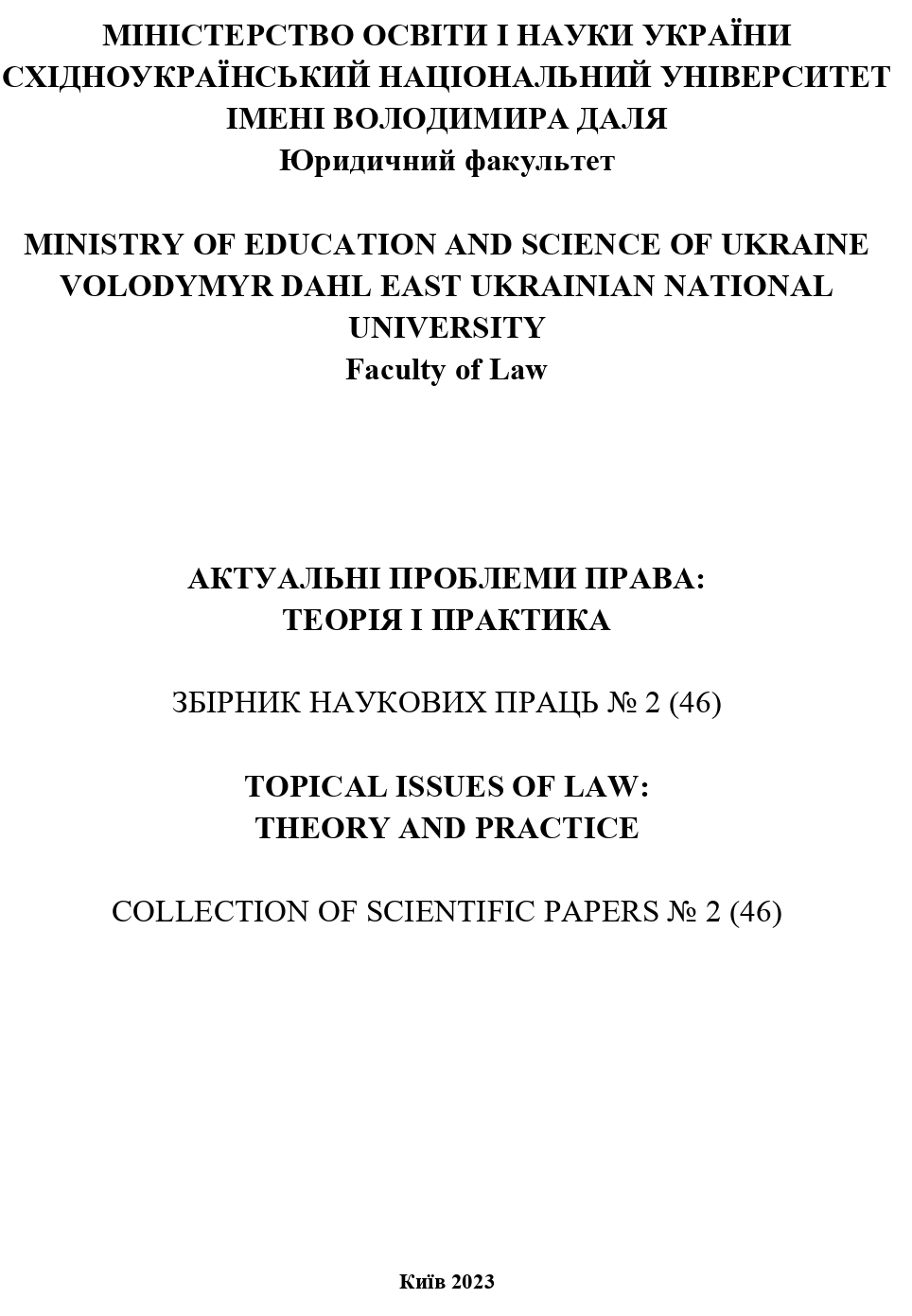LEGAL SUPPORT OF INTERNATIONAL TRANSPORTATION UNDER MARTIAL LAW
DOI:
https://doi.org/10.33216/2218-5461/2023-46-2-180-192Abstract
The article focuses on the issues of determining the specifics of legal regulation of international transportation during the period of martial law in Ukraine. The authors describe and analyze in detail the system of regulatory and legal support for the functioning of the system of international transportation by various modes of transport at the present stage. The authors analyze the main challenges faced by both the State as a whole and the transport services market players in the context of a full-scale war on the territory of Ukraine. Based on the analysis of national legislation, international agreements, works of Ukrainian researchers specializing in this area, the actual situation of business entities (carriers and freight forwarders) in the current conditions, as well as a comparative legal analysis of the effectiveness of temporary measures to liberalize the process of cargo transportation, the author concludes that it is necessary to revise the conceptual framework for legal regulation of international transportation in general.
The authors emphasize the importance of rethinking the fundamental foundations of the mechanism of legal regulation of international transportation in the paradigm of modern challenges, and also taking into account the predictably long and difficult post-war period for the economic system of Ukraine and, in particular, for its transport sector. The paper emphasizes the need to take into account the obstacles to the safe and unhindered delivery of goods at both the national and international levels. The peculiarities of the "Grain" agreement, "transport visa-free regime", etc. are analyzed. The authors also propose to develop a clear and effective strategy for legal support of international transportation in the postwar period.
Special attention is focused on the shortcomings of the regulatory and legal regulation system in Ukrainian legislation, the main "diplomatic" gaps in the regulation of international transportation of goods are identified, and the author proposes to revise the Agreement on "transport visa-free regime" in order to improve its provisions and restore its validity, as well as to find a consensus between Ukrainian carriers and carriers from the EU, to correlate the national policy of our State and the EU, etc.
Key words: international transportation, grain agreement, transport visa-free regime, cargo transportation, martial law.

